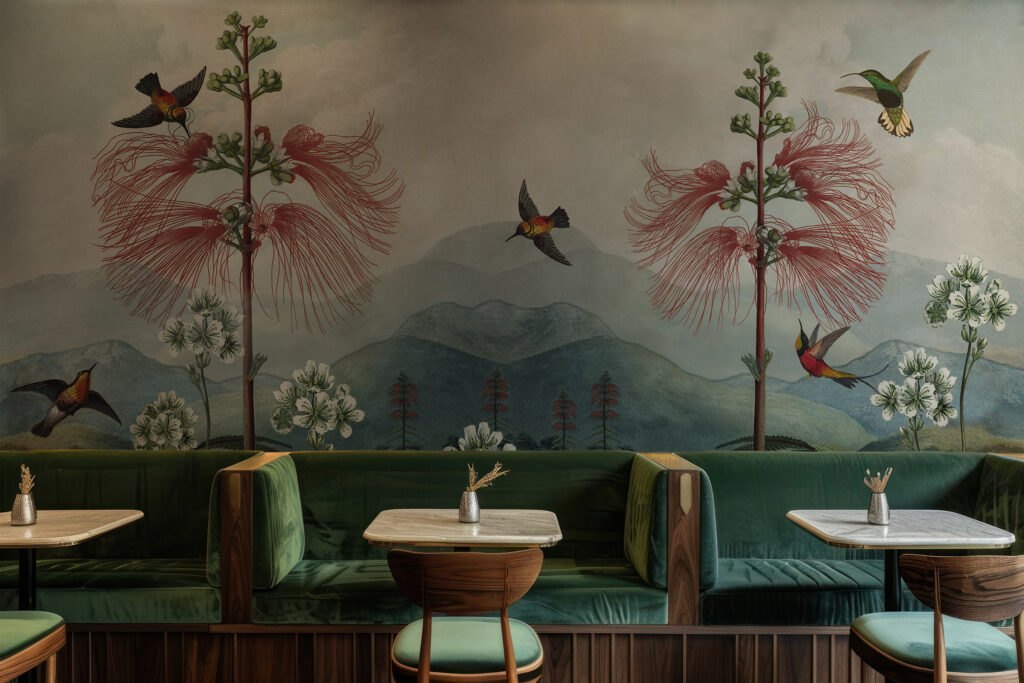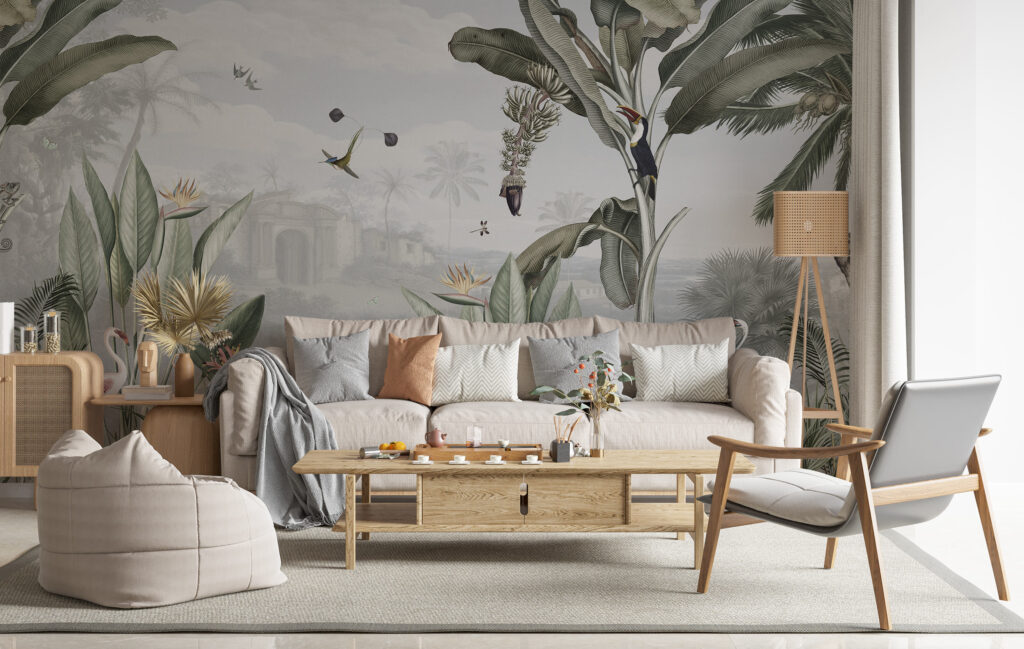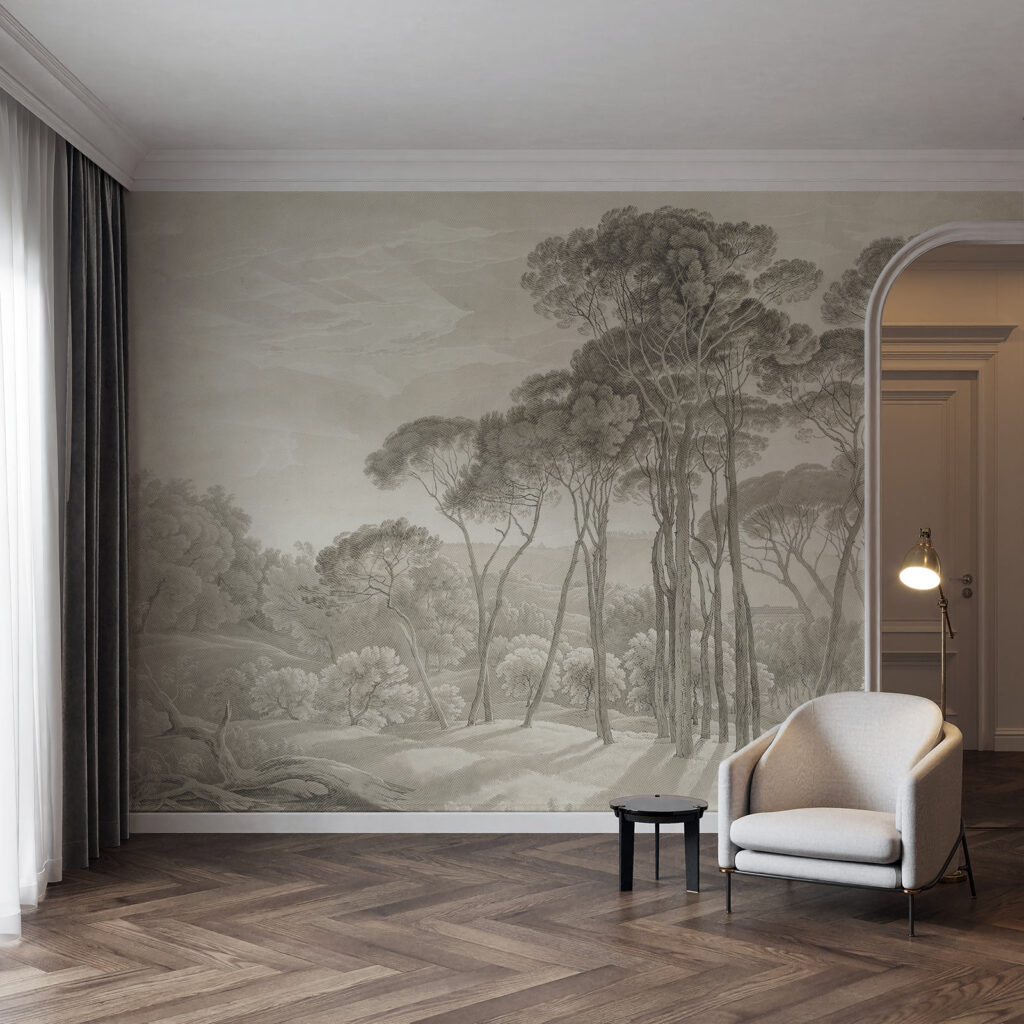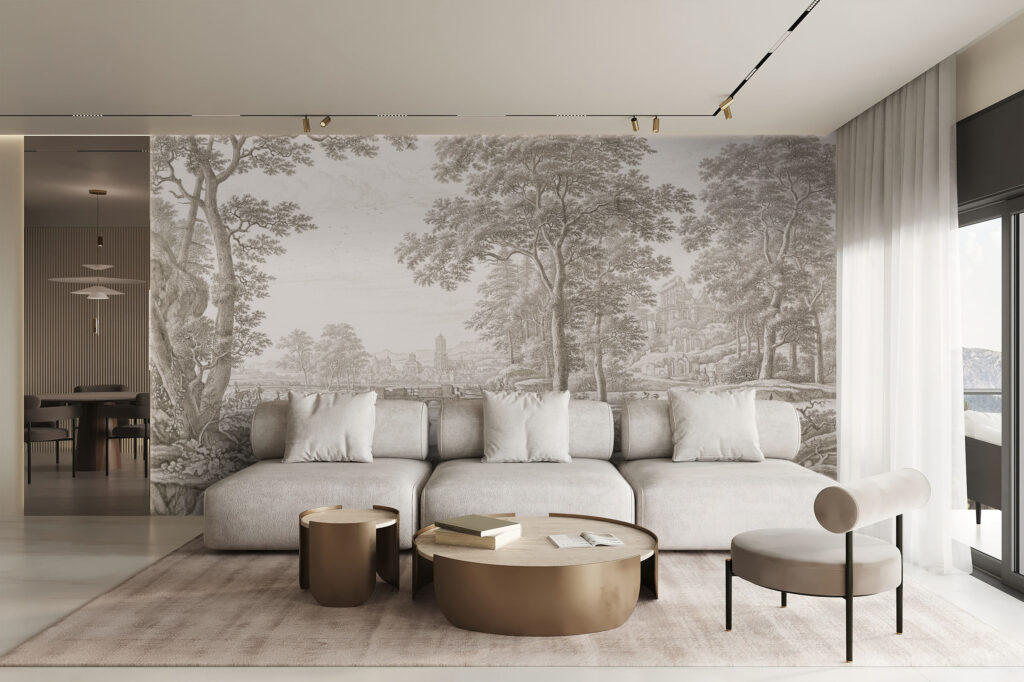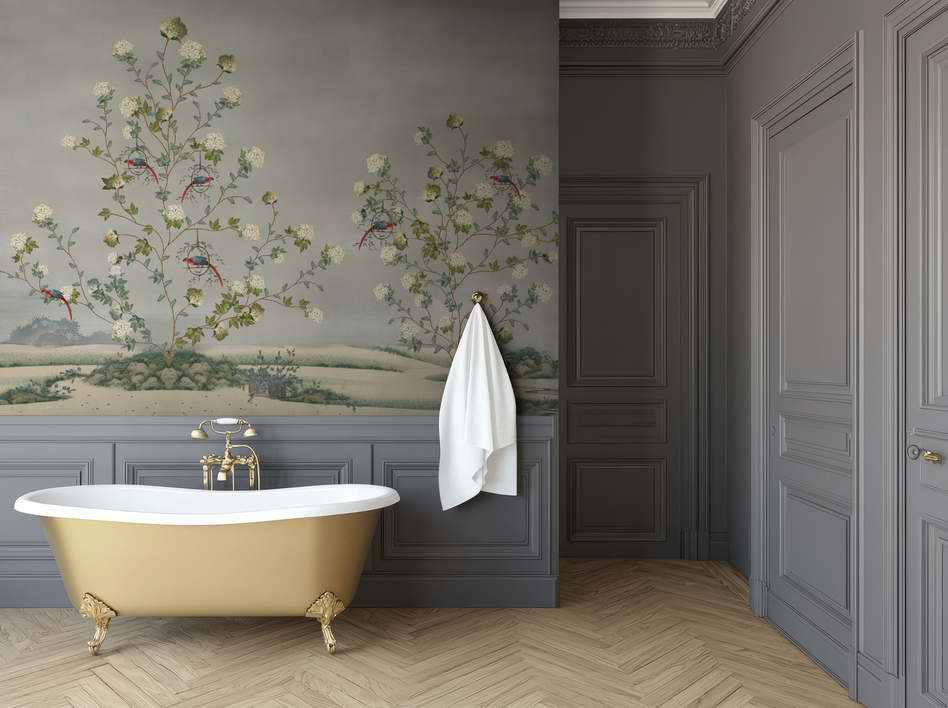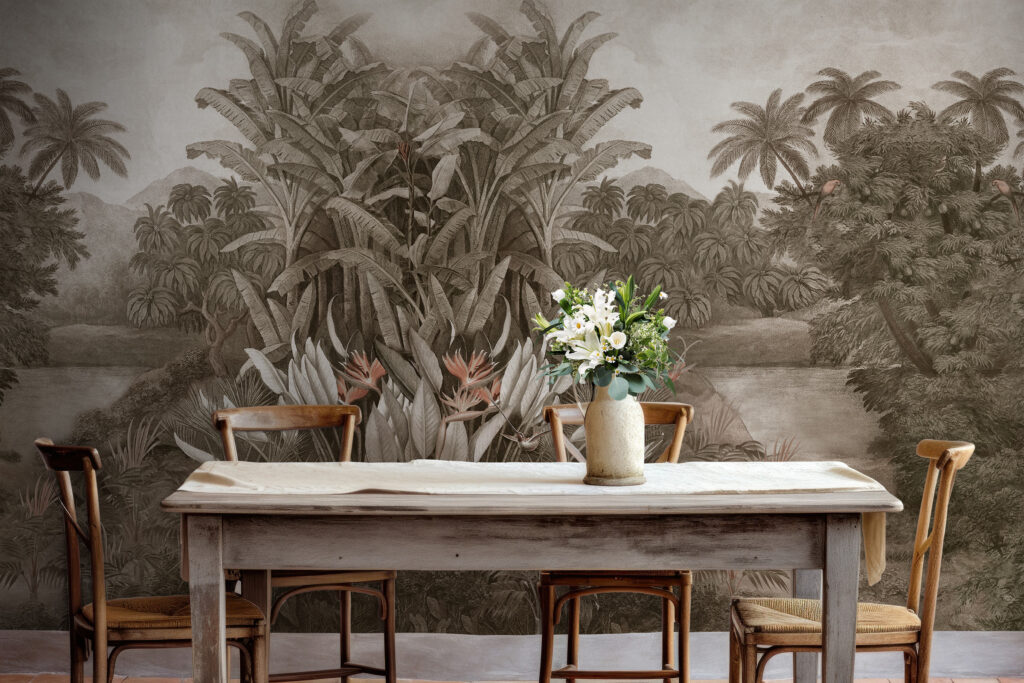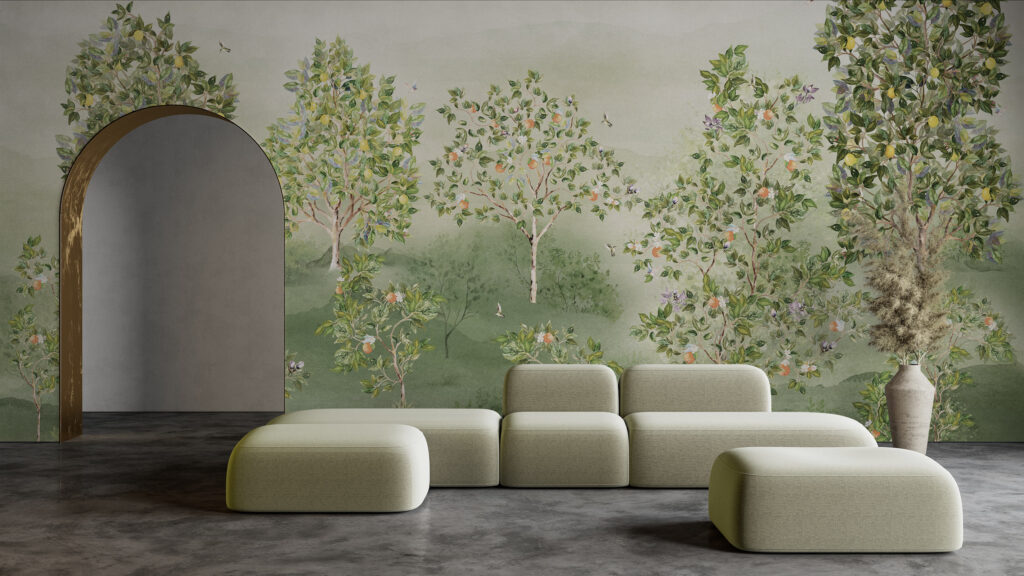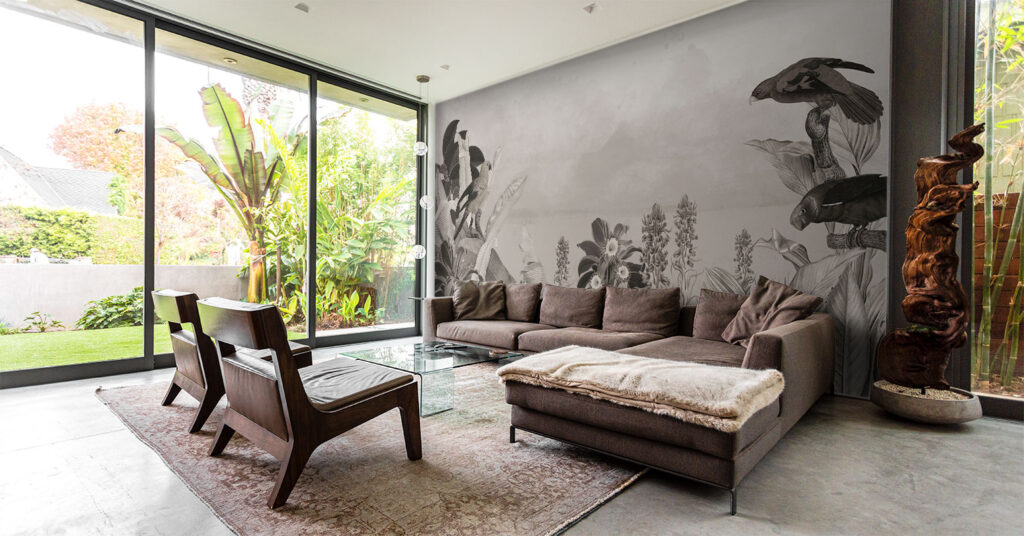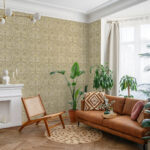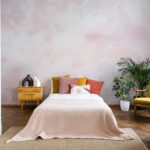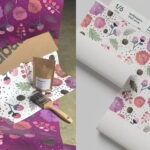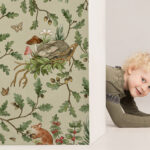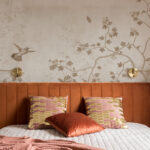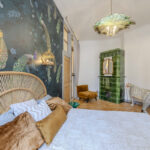What is panoramic wallpaper? Big impact, no repeats

Plain painted walls are safe… but let’s be honest — also a little boring. More and more design lovers are turning to panoramic wallpaper to create statement walls that feel like art, atmosphere, and interior design all in one. But what exactly is panoramic wallpaper, and why is it becoming such a favourite in modern homes? Let’s break it down.
A panoramic wallpaper (also called a panoramic wall mural) is a large, continuous image that spans across an entire wall.
Unlike regular wallpaper, it doesn’t repeat a small pattern. Instead, it creates one complete scene — like a landscape, a painted artwork, or a storytelling design. Think of it as hanging a giant piece of art directly onto the wall.
A short glimpse of history
Panoramic wallpapers are not a new trend, in fact, they were the height of luxury in the 18th and 19th centuries. In grand European homes and estates, entire rooms were decorated with scenic wall murals that told stories through landscapes, gardens, exotic travel scenes and chinoiserie motifs.
Famous French manufacturers like Zuber & Cie created hand-painted wallpapers using hundreds of woodblocks. These murals wrapped around the room and made walls feel like windows to other worlds. They were expensive, artistic, and incredibly detailed, more like wall-sized paintings than wallpaper.
Panoramic vs regular repeat pattern wallpaper: what’s the difference?
| Regular wallpaper | Panoramic wallpaper |
|---|---|
| Small repeating pattern | One big, continuous scene |
| Can be installed on any length | Designed for one or two walls |
| Decorative | Immersive + artistic |
| Subtle | Statement-making |
Regular wallpaper adds texture and pattern, while panoramic wallpaper transforms the entire wall into a view. If you want your wall to do more than just sit there, panoramic wallpaper is the ideal solution. It’s bigger than art, bolder than paint, and more personal than a repeat pattern. Some panoramic designs start with real paintings, illustrations or hand-drawn art — all carefully expanded into full wall scenes. Here are a few inspiring examples:
